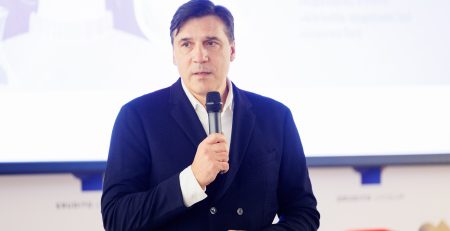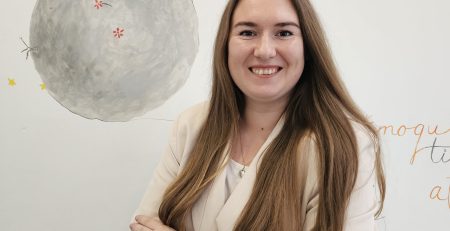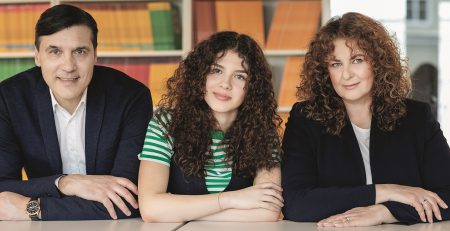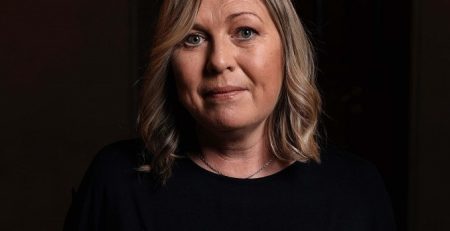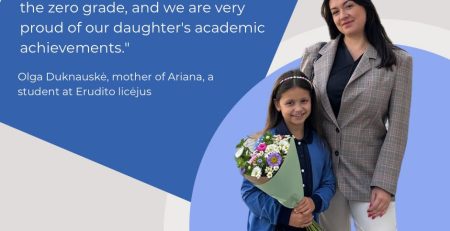The secret of a successful teacher is freedom, trust and faith
The quality of education system is often downplayed, and positive feedback can be heard from a rare expert or father. According to these people, school leaders focus too much on student’s future in the work chair and talk minimally about those who educate – teachers. According to the founder and director of Erudito licėjus, Assoc. Prof. Nerijus Pačėsa, this is the most important thing – to give teacher freedom, trust and faith in educational process. “The expectation of perfection on the part of parents often prevents teachers from not only from over-innovating, but also from working better according to rules and creating an image of stability that can hide even more mistakes in the long run.”
Success of a teacher is determined by several areas. The first area of competence relates to curriculum and pedagogical skills. Education limits teacher’s opportunities as it reaches students already trimmed in selected textbooks and programs. In this place, teacher needs personal courage, leadership support, and the trust of students and parents. Only then will he have freedom to change content and innovate. When a teacher is constantly pressured to fully fit the textbook sections and curriculums, the desire of educator to look for new ways to present information, more interesting topics related to education, is taken away. If we want students to be motivated by integral content, teacher must have the freedom to create, search, update, and add content. Then it will infect students as well. It’s freedom that encourages teachers to improve, grow and be able to make education interesting and engaging.
The second area is pedagogical excellence. Here we are confronted with teacher’s understanding of what he or she needs to bring to the classroom for subject to be included, for students to be actively involved in lessons rather than simply hearing the information being retold. This methodological diversity depends on teacher’s experience and choice of how much he or she wants and can bring pedagogical techniques and tools to the lesson. The more inclusive the methods, the greater the diversity, the more dynamics there will be in the classroom that will not always be positive. This can result in noise, decreased focus. This is a perfectly normal situation, especially in the beginning, until students are accustomed to learning in a classroom where active teaching methods are used. Yes, the so-called obedient class, in which everyone works concentrated and doesn’t ask anything, is user-friendly and doesn’t encourage search for any methodological diversity. Environment often requires this – management, parents and students, who do not always like dynamics and want a stereotypically quiet class.
The third area is the cultural environment that everyone creates. At school, it’s natural to create an environment where teacher is responsible for everything. This is true because he has the subject he’s teaching and the class he’s leading. If there are challenges or desires, you must come up with everything yourself. When there is a lot of individual action, a competitive environment is formed, focused on academic achievement and student obedience. This is often the perception of teacher’s performance. If there’s a strong culture of collaboration, teachers are more likely to innovate together, looking for ways to integrate specific topics in interdisciplinary lessons or adapting content to current issues. After all, the programs and textbooks don’t change quickly, and the teacher can always bring something new to the lesson and update the content. There are cultures that are egocentric, follow a long-established order, do not want to innovate and are even afraid of them. Even worse is when a competitive environment prevails in the school, when teachers don’t help each other and even harm each other. Then one educator wants to be worshiped by the management, parents and teachers, so the relationship between them and the formation of school environment suffers. If we want to see an ever-growing school that embraces innovation, it needs a collaborative culture that comes from all sides – management, colleagues, students, and their parents.
It’s not easy to gain trust of parents because they often want stability in educational process. They accept certain changes and innovations as risky and questionable in terms of performance. In part, they are right, and it’s understandable that mistakes will be made in experimentation and in the search for innovation. Expectation of perfection on the part of parents often prevents teachers from overdoing it with innovation, but from working better according to the rules and creating an image of stability that can hide even more mistakes in the long run. In the traditional system, we see repetitive transmission of knowledge, more “forging” than perception, humility and obedience win over cooperation, pseudo-focus is valued more than critical thinking. It’s clear that a visually “exemplary silent” class often hides the relationship between teacher of directives and students, and undermines creative and cognitive powers of students.
Positive and inclusive dynamics require faith and trust. If we have a teacher who has strong competencies, we need to trust him and demonstrate it. That he would like to improve and actively look for ways to turn each lesson into an exciting cognitive experience, he needs to know that he has someone who believes in him even if there are mistakes, and when that happens, encourage, not punish him. Teacher must demonstrate by his example that we must constantly explore, experiment, create, sometimes make mistakes, because without all this it’s impossible to create anything new and experience the joy of discovery.




